Abstract
1. No primary hydrogen acceptor other than phenazine methosulphate has been found for the alcohol dehydrogenase from Pseudomonas sp. M27. 2. None of a wide range of vitamins or cofactors has any effect on the activity of the enzyme. 3. The enzyme is far less sensitive to metal-chelating agents and thiol reagents than are other alcohol dehydrogenases. 4. Methanol is oxidized at least as fast as other alcohols by this enzyme and its well-defined substrate specificity is different from that of other alcohol dehydrogenases. Only primary alcohols are oxidized; the general formula for an oxidizable substrate is R·CH2·OH, where R may be H or [Formula: see text] 5. Whole organisms oxidize only those alcohols that are oxidized by the isolated enzyme.
Full text
PDF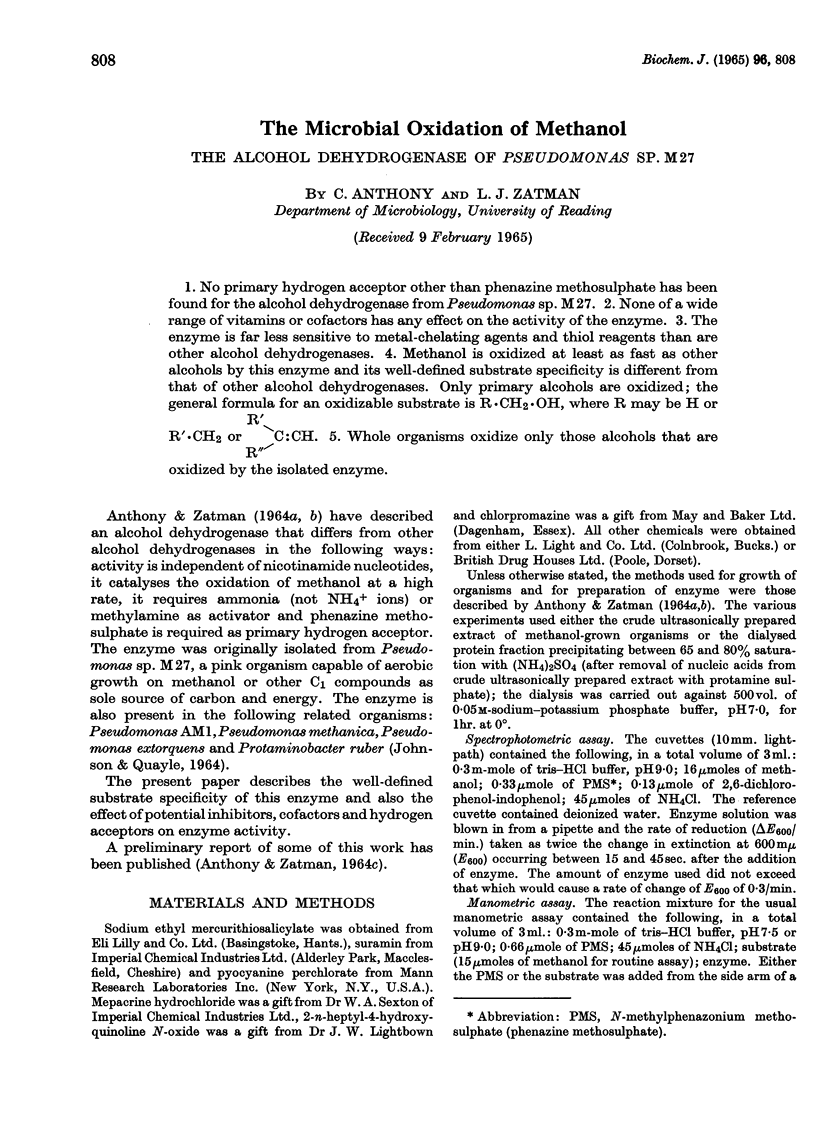
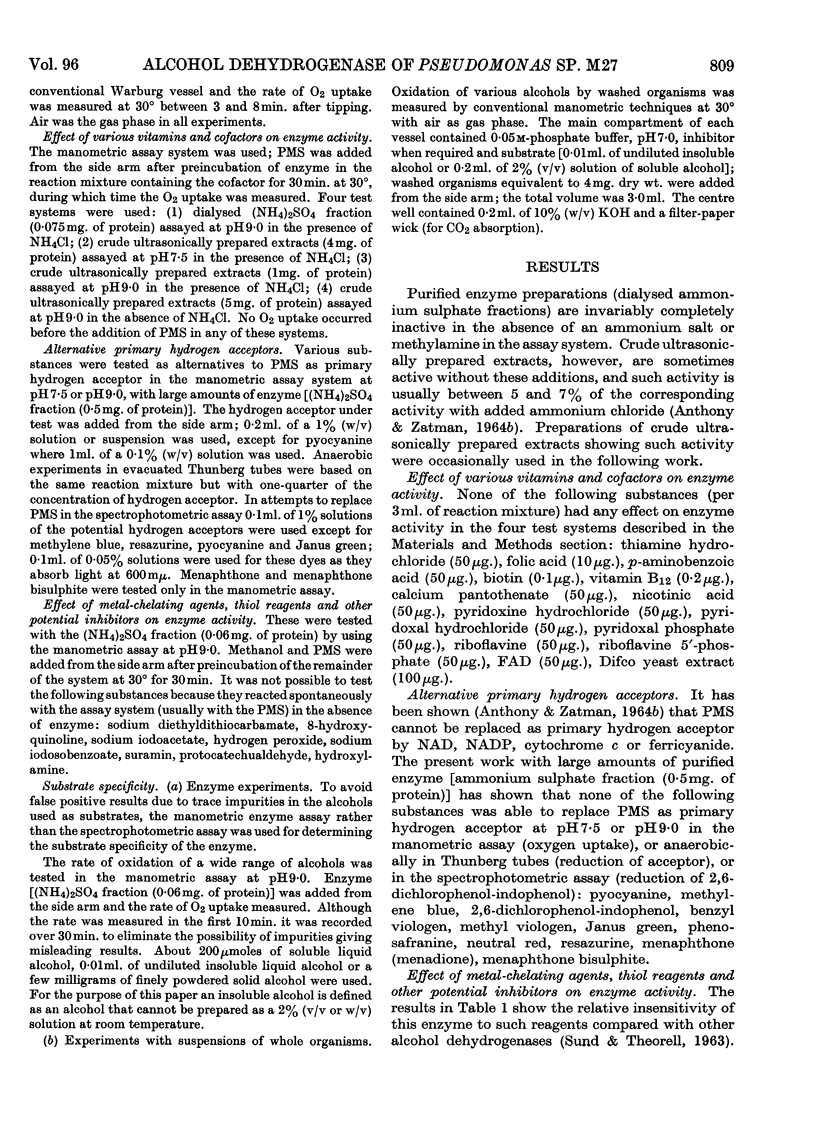
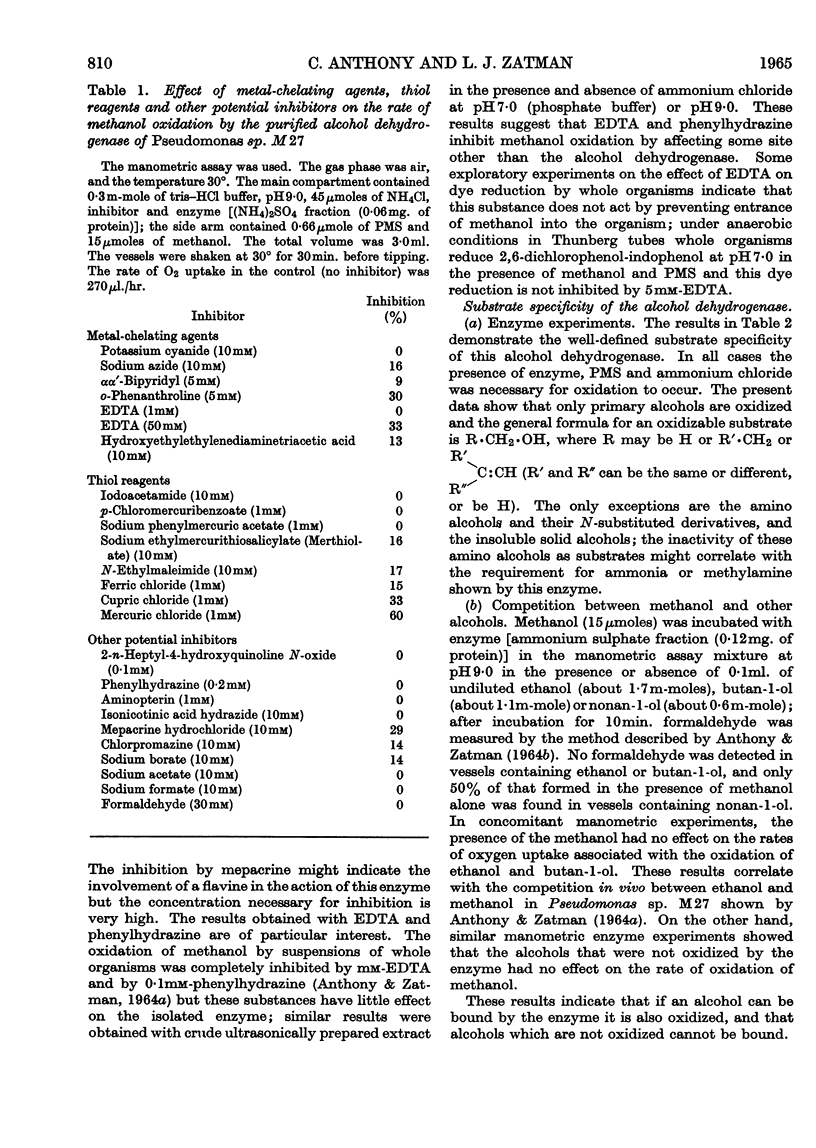
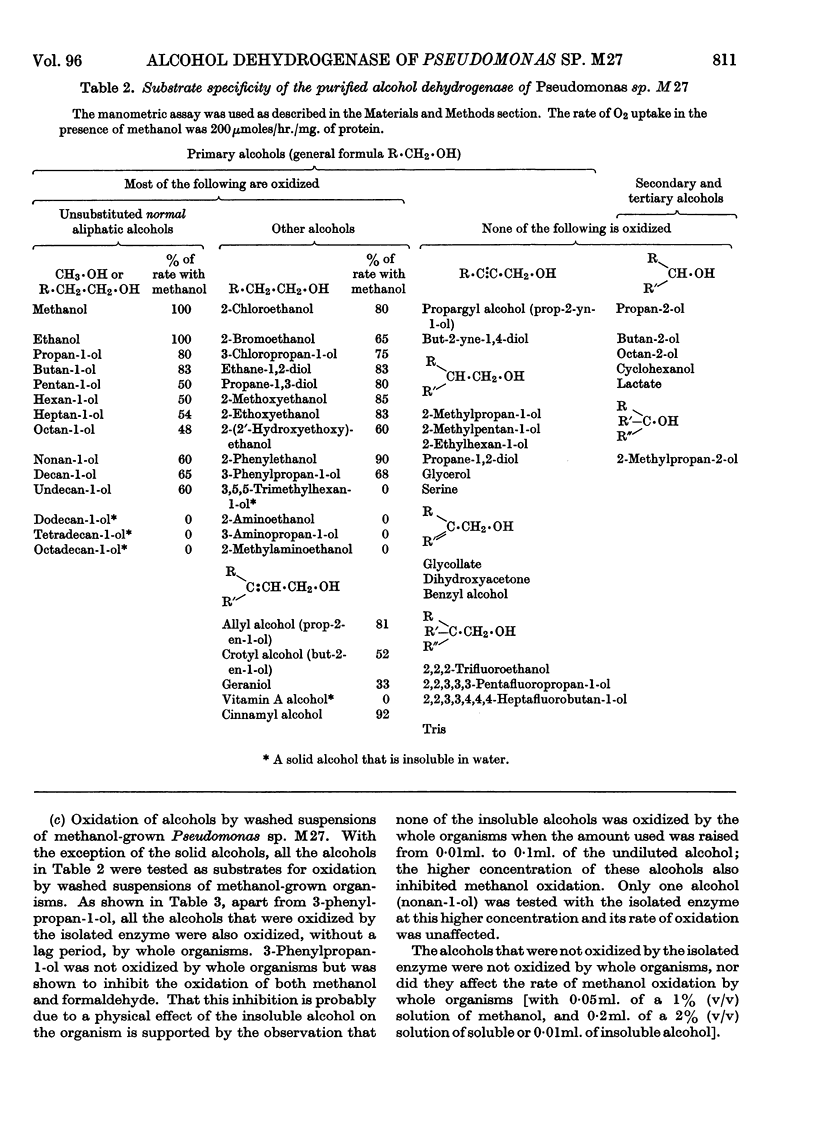
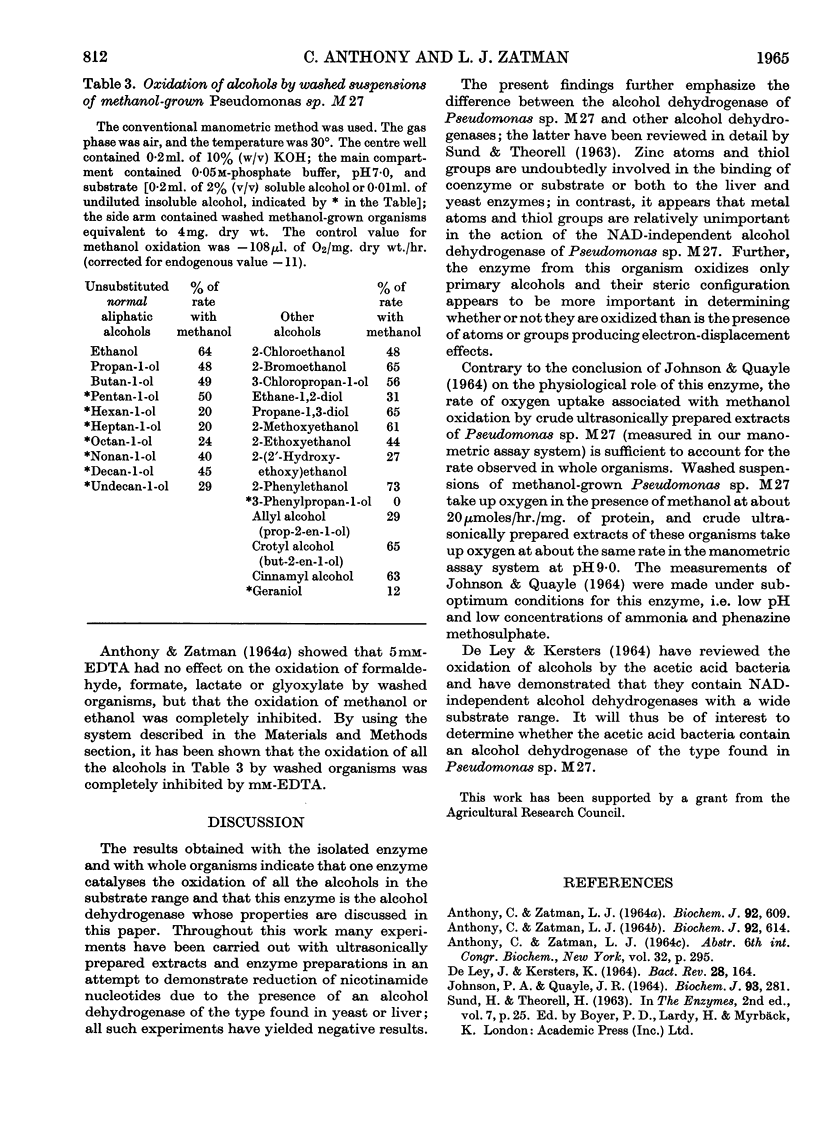
Selected References
These references are in PubMed. This may not be the complete list of references from this article.
- Anthony C., Zatman L. J. The microbial oxidation of methanol. 1. Isolation and properties of Pseudomonas sp. M27. Biochem J. 1964 Sep;92(3):609–614. doi: 10.1042/bj0920609. [DOI] [PMC free article] [PubMed] [Google Scholar]
- Anthony C., Zatman L. J. The microbial oxidation of methanol. 2. The methanol-oxidizing enzyme of Pseudomonas sp. M 27. Biochem J. 1964 Sep;92(3):614–621. doi: 10.1042/bj0920614. [DOI] [PMC free article] [PubMed] [Google Scholar]
- DELEY J., KERSTERS K. OXIDATION OF ALIPHATIC GLYCOLS BY ACETIC ACID BACTERIA. Bacteriol Rev. 1964 Jun;28:164–180. [PMC free article] [PubMed] [Google Scholar]
- Johnson P. A., Quayle J. R. Microbial growth on C-1 compounds. 6. Oxidation of methanol, formaldehyde and formate by methanol-grown Pseudomonas AM-1. Biochem J. 1964 Nov;93(2):281–290. doi: 10.1042/bj0930281. [DOI] [PMC free article] [PubMed] [Google Scholar]


